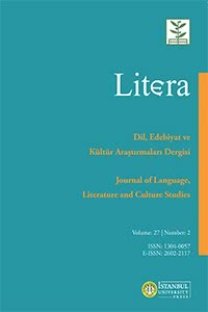E. L. DOCTOROW'S THE BOOK OF DANIEL: TOWARDS A POSTMODERN CONCEPTION OF JUSTICE
E. L. DOCTOROW'S THE BOOK OF DANIEL: TOWARDS A POSTMODERN CONCEPTION OF JUSTICE
DOCTOROW'S, BOOK DANIEL,
___
Cooper. Steven. "Cutting Both Ways: Doctorow's Critique of the Left", South American Review 58:2 (May 1993): I I 1-125.Derrida, Jacques. ·'Force of Law: The ''Mystical Foundation of Authority". Deconstruction and the Possibility of Justice. Ed. Drucilla Corne), Michael Rosenfield and David Gray. New York: Routledge, 1992. 3-67.
Dillon. Brian. "The Rosenbergs meet Nebuchadnezzar: the narrator's use of the Bible in Doctorow's The Book of Daniel", Critique 40:4 (Summer 1999): 365-378.
Doctorow. E.L. "False Documents". In Jack London, Hemingway and the Constitlllion: Selected Essays, 1977-1992. New York: Random House, 1993. 151-164.
The Book of Daniel. New York: A Plume Book, I 996. (First published in I 97 I). Emblidge, David. "Marching Backward into the Future: Progress and Illusion in Doctorow's Novels", South West Review (Autumn 1977): 397-409.
Jameson, Fredric. Postmodemism or, the Cultural Logic of Late Capitalism. Durham: Duke / University Press, I 999.
Kauffman. Stanley. "Wrestling Society for a Soul", New Republic (June I 97 I): 25-27. Leckie, Barbara. "The force of law and literature: critiques of ideology in Jacques Derrida and Pierre Bourdieu", Mosaic 28 :3 (September 1995): 109-128.
Marranca, Richard. "Finding a Historical Line: an interview with E. L. Doctorow", Literary Review 39:3 (Spring 1996): 407-413.
Parks, John G. "The Politics of Polyphony: The Fiction of E. L. Doctorow", Twentieth Literature 37:4 (Winter 1991): 454-463.
Prunier. Chanel. ''Doctorow's The Book of Daniel", Explicator 60:2 (Winter 2002): I 09- I I I. Tokarczyk, Michelle M. ''From the Lion's Den: Survivors in E. L. Doctorow's The Book of Demiel", Critique 29: I (Fall 1987): 3-15.
- Yayın Aralığı: Yılda 2 Sayı
- Yayıncı: İstanbul Üniversitesi
A UNIQUE GENRE IN ENGLISH LETTERS: THE MEMOIRS OF OTTOMAN WOMEN
CRIME, DETECTION, AND THE RESTORATION OF ORDER: A STUDY IN WILKIE COLLINS'S THE MOONSTONE
THE CHALLENGES OF TRANSLATING THE METAMORPHIC FEMALE IMAGE IN ELIZABETH SMART'S NOVELS
RUS YAZININDA "SLAVCILIK" DÜŞÜNCESi
WOMAN AS NOMAD: AN ALTERNATIVE CONFIGURATION OF FEMALE SUBJECTIVITY
URSULA LE GUIN'iN MÜLKSÜZLER'iNDE ÜTOPYANIN DEĞiŞEN YÜZÜ
iVAN GONÇAROV: OBLOMOV'UN DÜNYASINA BiR BAKIŞ
THE DISSOLUTION OF VALUE AND MEANING IN JOHN BARTH'S THE FLOATING OPERA
